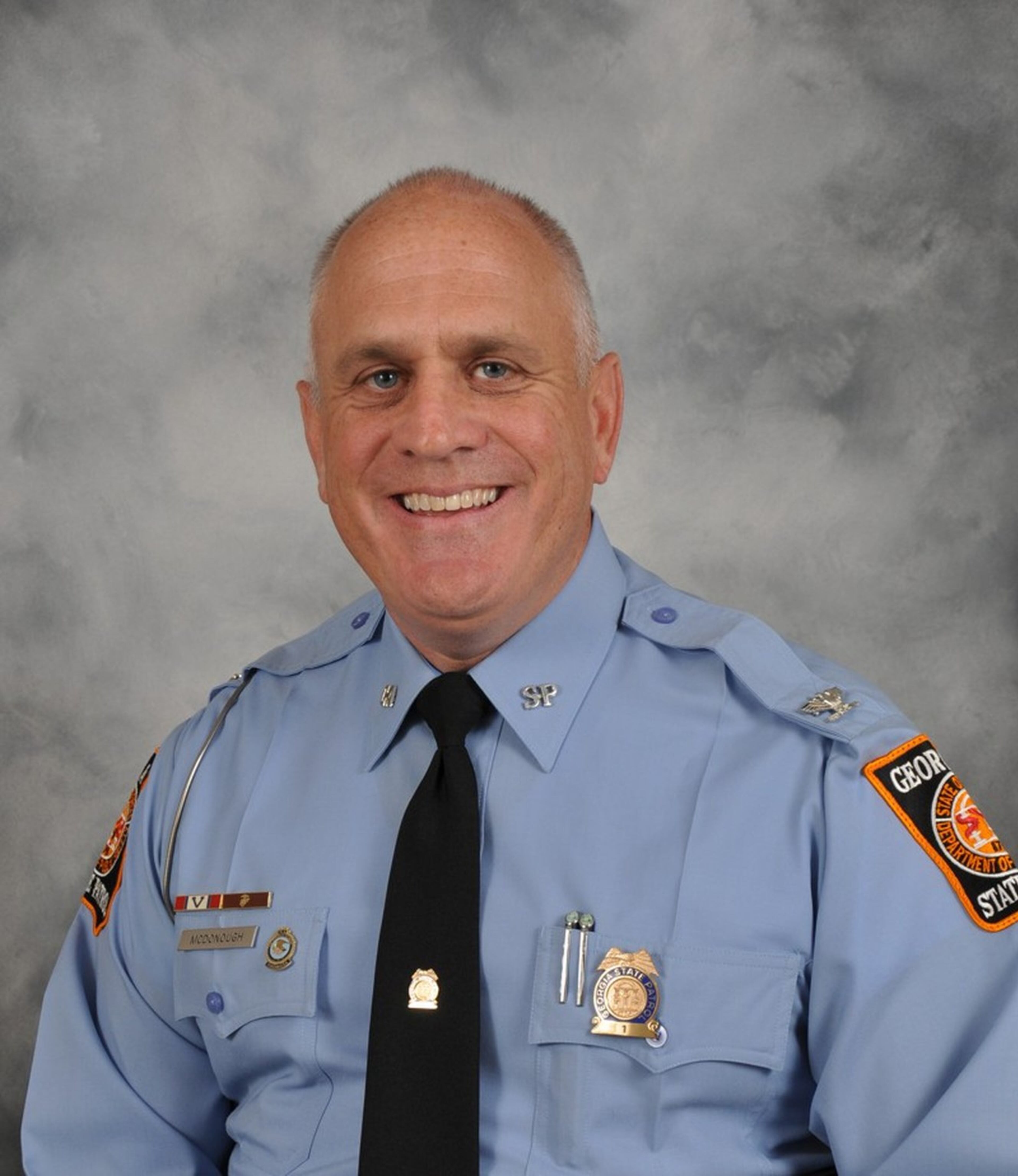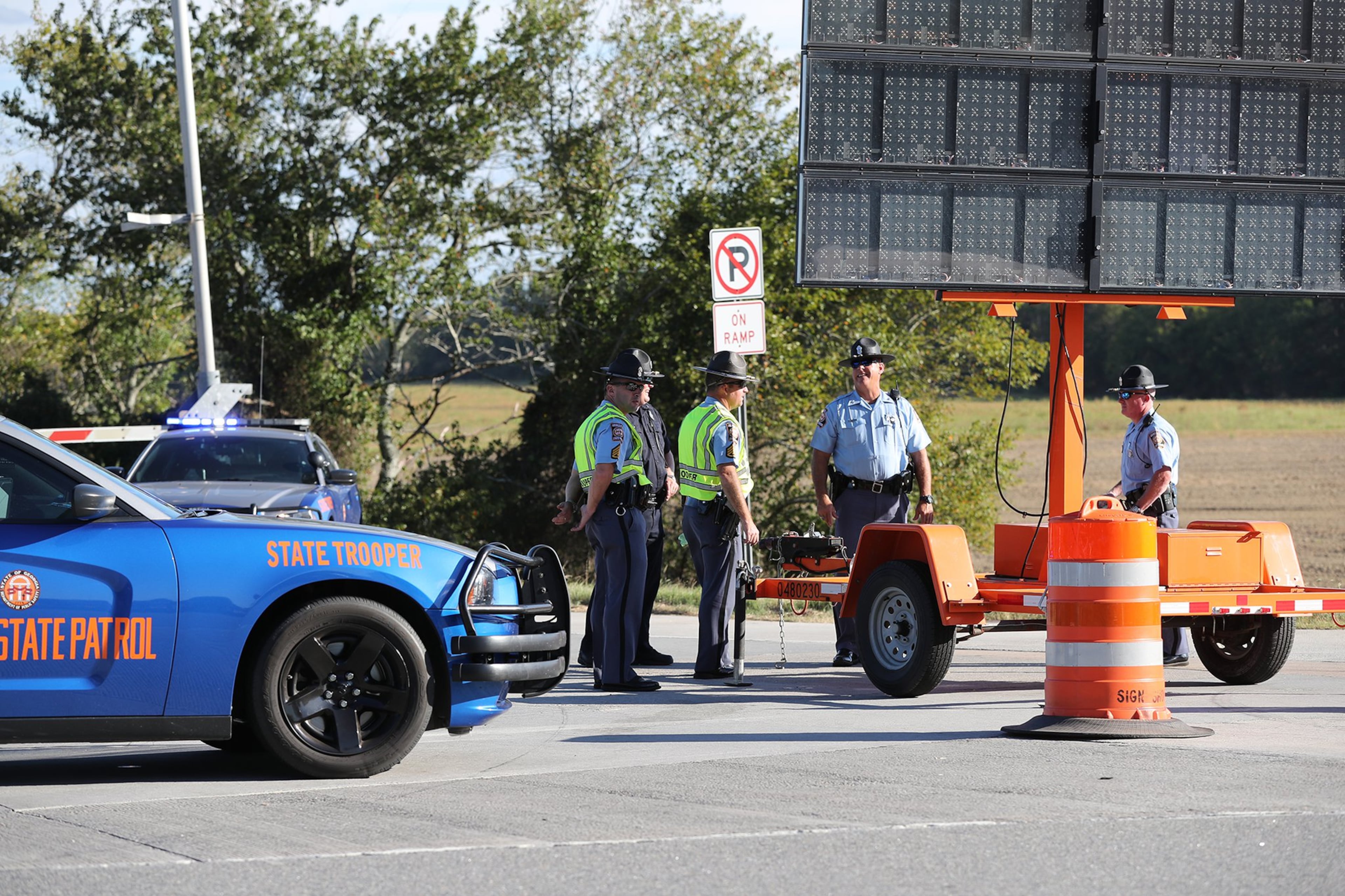OPINION: Talk about arrested development! Whole trooper class gone

It’s an old story. A relationship goes sideways and the spurned partner goes public with dirty laundry.
That’s what happened to Demon Clark, who is now a former Georgia State Patrol trooper. In October, a woman called the department to say that she took a test — successfully — on behalf of Clark when he attended the training academy last year.
Clark, who graduated in August, was just a couple of months into his career of writing tickets and arresting drunk drivers when he was hauled into office from his east Georgia patrol post and grilled by higher-ups.
He soon ‘fessed up and then, when he learned he was getting fired, laid a whopper on the department. In fact, it was a Double Whopper with extra pickles. Let me allow Col. Mark McDonough, who heads the State Patrol, explain what happened: “He said, ‘I’m not the only one who cheated.’ He made the allegation that everyone had cheated. When that occurs, that gets your attention.”
Not only is McDonough a veteran lawman, he’s also a master of understatement. By “getting your attention” he means that two investigators spent three months conducting dozens of interviews and compiled 2,491 pages of reports — for now — which led to a very heartfelt press conference Wednesday afternoon at State Patrol headquarters.
It turns out they all cheated, and now they're all gone, all 30 of them, the Georgia State Patrol's entire 106th cadet class. (One trooper is away on military duty. His fate will be determined later.)
McDonough didn’t hold back when considering the impact. “It’s a punch in the gut. Our whole mode is to produce an officer the public can trust,” he said. “This goes to our core values.”

Keeping highways safe and running radar is at that core. “We’re the speed jockeys,” McDonough said. In fact, they help certify other departments on the equipment. Imagine if it became known that the ramrod-straight Georgia State Patrol troopers were cheaters.
The cadets were supposed to complete online tests on radar functions in their academy dorm rooms after attending class. Instead, they used social media to share test questions and answers, Googled answers, shared written and typed notes while taking tests, and received direct assistance from at least one smart classmate.
The 106th, which graduated in August, was an unusually young class, with no one more than 31 years old, McDonough said.
After the press conference, he told me there was something generational to this.
“Adolescence has been extended in our society,” he said. “They’ve been conditioned to the use of this (he held up his iPhone) for everything.”
Memorization, he said, “is not part of their makeup. You need to know it? Google it. We have the Library of Congress at our fingertips.”
But students must absorb information to succeed in their careers. “You don’t want to go to a doctor if he has to Google it,” McDonough said.
He added that he handed each member of that class their diplomas and thought many of them had the makings of exceptional troopers.

McDonough said he is pulling the plug on the online testing for radar enforcement, and cadets will return to taking tests in the classroom with proctors.
A sense of panic gripped the 106th last year when two of the class leaders, its president and squad leader, failed the radar testing.
“Three of the like, uh, smartest guys in the class took the test first and two of the three failed,” former trooper Clarence Johnson told investigators. “So the rest of the class, we knew it was no joke and it was a hard test.”
Another former trooper, Daysi Ramirez, said the teacher told the class, “Y’all have (computer terminals) in your room and y’all have each other. … Use your resources. … Don’t let anyone else fail.”
Investigators said several former students made similar statements and perceived this as consent to help one another pass the tests. Besides, they said, it was online, not like the other exams, so they didn’t think it was as important.
The instructors said they meant for the students to help each other study for the tests.
This was the third cadet class using online testing. McDonough said the department would investigate to see if there was more cheating. According to the report, Capt. Scott Woodell told investigators he approved the online testing at the academy, despite his reservations, “because of the desperate need for additional training in the areas of defensive tactics, mechanics of arrest and traffic stops” — areas in which he described some cadets’ performance as lacking during field training.
Although the 106th graduates were detailed across the state last fall, word of the investigation quickly spread. Some tried to get their stories straight. In a chat group called Unruly Troopers, Johnson wrote, “Let’s all come to agreement now! We all took our tests and Clark is a dumbass.”
Trooper Adam Salter chimed in, “It’s not lying if you don’t remember.”

Now, it must be remembered that cheating is as old as testing, so it simply shouldn’t be laid at the feet of a wily, unethical generation. No doubt someone sneaked an abacus into a math test long ago or scribbled answers inside their toga.
There was widespread cheating in Harvard University (2012), in West Point (in 1951 and 1976) and with Atlanta police (cheating in promotion tests in the 1970s and in the academy in 2015, when three cadets were fired.) There was the rampant teacher and administrator-fueled cheating on tests in Atlanta Public Schools, and in 2017 there was a round of cheating with recruits in the school district's newly created police force. Most were meted out reprimands.
But McDonough wasn’t in a mood to go light. He said the path for harsh discipline was determined with the initial cheater getting fired. Honesty is the core foundation. And while just about everyone lies at some point, it’s especially bad if they have a badge and a weapon.
And, of course, a radar gun.



